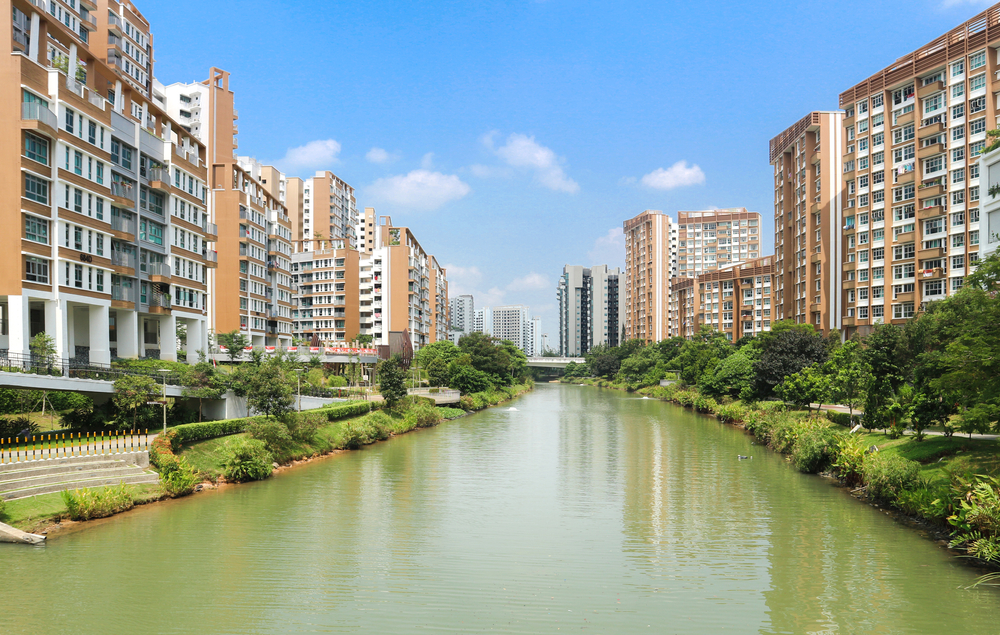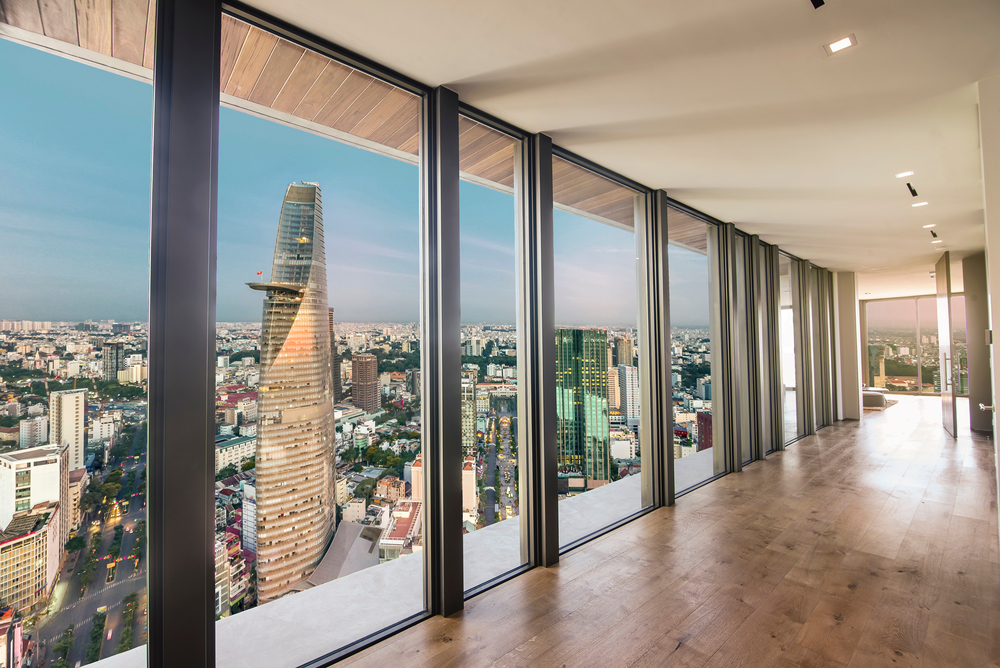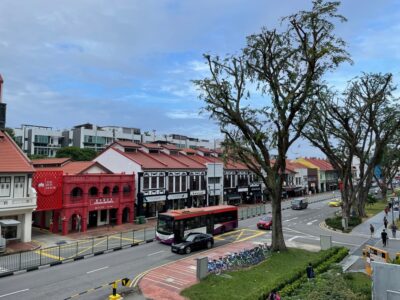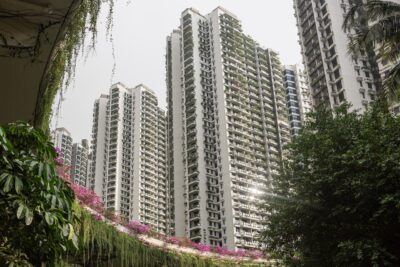Where Gen Z and millennials stand now on the property ladder
Filial piety and a lack of affordability in housing markets regionwide, exacerbated by the pandemic, are stymieing the buying ambitions of young property seekers around Southeast Asia

From the “Greatest Generation” to “Baby Boomers” to the “MTV Generation,” some demographic cohorts have worn their labels like badges of honour.
Those born between 1981 through 1996 got the short end of the baton: “Generation Rent.”
Generation Y has held a fascination for real estate pundits over the last decade. Witnesses to once-in-a-lifetime socioeconomic setbacks from the global financial crisis to today’s pandemic, so-called millennials have scaled the property ladder with less precocity than their forebears.
Delaying their homeownership goals until later in life, millennials are not “adulting” enough or so the old accusation goes.
Their little siblings are not exactly “Generation Buy” either. By 2020, Generation Z, those born from 1997 onwards, became the most populous generation in history at 2.47 billion even as a health crisis depopulated the planet (and diminished their job prospects).
Homeownership is even more elusive in Southeast Asia, a melting pot of ethnicities where more than half of the populace is younger than 30. But Generation Rent is not a fair assessment of the region’s youth—they haven’t left the nest in the first place.
“Tight-knit family cultures, higher-than-average ages of a first marriage, and a lower rate of marriages mean that Southeast Asia’s millennial population have not felt as much pressure to move away from their families, compared to millennials in other parts of the world,” says Christine Li, head of research for Knight Frank Asia-Pacific. “The idea of ‘Generation Rent’ simply has not applied here.”
Filial piety still holds sway in Southeast Asia despite how progressive the last generations may have seemed. In a recent survey by PropertyGuru, the majority or 49 percent of millennials in Thailand and, to a lesser extent, Indonesia (31 percent) cite taking care of parents as the top barrier to moving out over the next year. In Singapore, being unmarried prevents most respondents (41 percent) from flying the coop, a social more echoed throughout conservative Asia.

“Southeast Asia has traditionally never had a strong ‘rental culture,’ and most households have preferred to own their dwellings as opposed to renting,” says Li.
Still, the desire to move out remains strong among ASEAN youth. Even though up to 30 percent of millennials still report living with their parents in Singapore and Indonesia, as much as 84 percent of them still intend to move out over the next year, the survey shows. Thailand is an outlier at 42 percent, with most youngsters unwilling to leave the nest anytime soon.
The story of first-time homeownership is one of affordability. Although hyped as a fast-growing economic bloc to rival the EU, Southeast Asia suffers from some of the highest home-price-to-income ratios of any region due to stagnating wage levels in developing economies, some destabilised by strife and autocracy. It also suffers from unsustainable capital value growth in some cities, boiled to a froth by speculative buying and low-interest-rate environments, especially during the pandemic.
“The ASEAN bloc has enjoyed a stellar economic growth over the last few decades, with countries such as Vietnam, Cambodia and Philippines experiencing the sharp rise of the middle-class population, which resulted in a shortage of affordable housing in many of the capital cities,” says Victoria Garrett, head of residential for Knight Frank Asia-Pacific.
Portents of a housing unaffordability crisis could make Generation Z the true heir apparent of the Generation Rent tag. “From what we have seen of Generation Z, social trends are reversing as more youths are desiring independence from their families,” says Li. “Despite trends of slower and fewer marriages, more individuals from Generation Z will seek opportunities to move out into their own pads.”
Millennials are built differently. Under immense pressure from social media, they have trailblazed the experience economy, given to frequent travel, eating out, and live events at the expense of tangible assets like a car or house. Millennials are not monikered the “Me Generation” for nothing.
More: Shelters from the storm: Asia’s best luxury boltholes
One in three millennials looks to purchase a luxury home, or those priced above SGD5 million in the long term, according to the PropertyGuru Singapore survey. Most justify it as a dependable long-term investment (66 percent) but 30 percent also cited “social status” as a reason to purchase.
“There is no doubt that millennials in Singapore are one of today’s fastest-growing segments of home buyers, with savings accumulated from pandemic sheltering,” states Tan Tee Khoon, country manager of PropertyGuru Singapore. “The delay in home buying can be due to millennials’ increasing preference for a larger, luxury property that commands higher prices than typical starter homes.”
Digital natives all their lives, Generation Z are torchbearers of the gig economy, favouring access over consumption. Where Generation X and millennials consumed status symbols and experiences, respectively, Generation Z consume the “search for truth” and prefer to make ethically, environmentally informed buying decisions, according to McKinsey.
True enough, young Asian home buyers tend to factor in good air quality, proximity to green spaces, and access to good healthcare in their choice of post-Covid residences, reports Knight Frank. A staggering 46 percent of millennials in Singapore are willing to pay a premium to live in “green towns” or sustainable estates, reports PropertyGuru. Around one in three millennials is also willing to pay more for properties with EV charging points.

“The pandemic has put health and wellbeing into the forefront of younger generations’ consciousness when selecting new homes,” says Li.
Without the Bank of Mom and Dad, lower-income segments among young generations could only do so much without regulatory support. Tools to curb speculative buying like tax penalties, lower loan-to-value (LTV) ratios, price controls, and tighter mortgage rules may spur first-time home buying for end-use, but they are not airtight measures.
“In South Korea…cooling the market only ended up locking the low- to middle-income groups from purchasing homes over the past three years,” warns Li. “This has impacted younger property seekers in particular, who are at the beginning of their careers and have yet to have built up resources for their first purchase.”

On the other end are property seekers who think housing policies are not warm enough. In Malaysia, only 16 percent of Malaysians perceive governmental efforts to make housing affordable as sufficient, reports PropertyGuru. Seventy percent of respondents called for further reduction of interest on home loans even as 46 percent of first-time homebuyers in their 30s expressed hopes of saving enough money to clear their debts.
More: Cities within cities: Time for townships in Asia
“At the end of the day, as long as policymakers keep in mind the objective of the residential being for fulfilling one of our most basic needs, we will see the target of young buyers ascending the property ladder be achieved,” Li says.
Today’s youth will eventually come into money. Millennials stand to inherit over USD68 trillion from their parents by the year 2030, the greatest wealth transfer in modern history. With many families having accumulated wealth in property, the desire for homeownership will surely live on through the years.
“Property ownership in Asia has always been aspirational, and I don’t see this changing in the future,” says Garrett.
The original version of this article appeared in Issue No. 169 of PropertyGuru Property Report Magazine. Write to our editors at [email protected].
Recommended
Meet the vagabond architect behind India’s housing scene
Vinu Daniel is helping to shake up India’s home building setting
Where Asian real estate stands in a fragmented, warmer world
Asia’s real estate industry faces many and varied challenges as external factors continue to bite
6 sights to see in Singapore’s Marine Parade
Handily located Marine Parade has emerged as a vibrant investment choice in the Lion City
There’s a township dedicated to health and wellness in Malaysia
Property seekers have their health needs catered for at KL Wellness City








